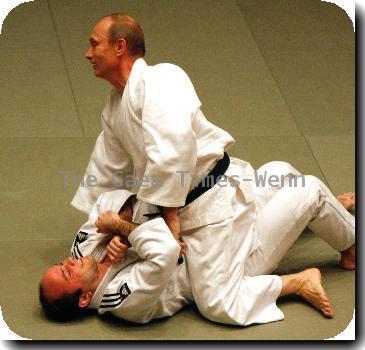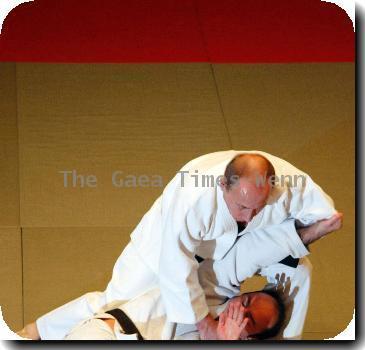NATO military chief wants more military cooperation with Russia, including in Afghanistan
By Slobodan Lekic, APWednesday, January 20, 2010
NATO military chief courts Russia’s help
KABUL — NATO’s military chief said Wednesday he would like to explore the possibility of expanding the alliance’s military cooperation with Russia, especially regarding the war in Afghanistan.
Adm. James Stavridis said this could include Russian help in maintaining the large fleet of Soviet-built helicopters being used by the alliance and Afghan security forces, and other logistical assistance.
Russia has no forces in Afghanistan, but it has kept open a land and air route through its territory and through Kazakhstan and Uzbekistan — an alternate to NATO’s principal supply route through Pakistan, which often has been attacked.
Russia also has trained hundreds of Afghan government anti-narcotics officers.
“There are many zones of cooperation that we can explore,” Stavridis said during an interview in Kabul at the conclusion of his three-day visit to NATO troops in Afghanistan.
The alliance’s relations with Moscow have largely normalized since they were frozen in the aftermath of the war between Russia and Georgia in August 2008. Regular contacts at ministerial level resumed last year.
At their summit with Russia in April, alliance leaders emphasized the need for cooperation with Moscow on issues of common interest. These include the war in Afghanistan, counter-piracy, and combatting terrorism and drug trafficking.
In December, NATO Secretary-General Anders Fogh Rasmussen traveled to Moscow for talks with President Dmitry Medvedev and Prime Minister Vladimir Putin. The meetings ended without specific undertakings on military-to-military cooperation, but both sides said they were encouraged by the progress in political relations.
Some analysts have suggested that the next step should be a meeting between Russia’s and NATO’s top commanders that would look at boosting military cooperation.
“I do not have a planned trip, but I’m always open to conversations with my military counterparts,” Stavridis said. “NATO’s secretary general “has taken the first step, and I am waiting for his guidance on this.”
Moscow has been critical of some aspects of the Afghan war, but Russia has repeatedly noted concern about the possible expansion of Islamic militancy in Central Asia and the large expansion of heroin and opium smuggling it says would result from a Taliban victory.
Russia’s envoy to NATO, Dmitry Rogozin, this month urged the NATO alliance to remain committed to Afghanistan until that nation’s security forces are able to handle the Taliban insurgency on their own.
“I’m open to any discussion of Russian assistance to Afghanistan,” Stavridis told The Associated Press. “They have been helpful in our northern supply routes, and the next step would be some form of logistics support.”
In Moscow, a spokesman for the Russian Defense Ministry refused an immediate comment Wednesday, saying foreign military affairs were outside his area of expertise.
Stavridis mentioned the possibility of helping NATO security forces maintain the large fleet of Soviet-built military helicopters being used by both the alliance and the Afghan army and police.
“A lot of equipment of the Afghan security forces is of Russian design, and possibly the Russians could help,” he said.
In November, Moscow sold four Mi-17 transport helicopters to Afghanistan — the first new aircraft delivered to Afghanistan in two decades.
Russia also has sold small arms and other weapons systems to the internationally backed Afghan government for several years and provided $220 million worth of military aid, including aviation equipment, an air-defense system for Kabul airport, communications gear, vehicles, repair equipment and spare parts.
Russia currently is helping train 21 Afghan drug police officers at a facility outside Moscow in a joint project with NATO, and next year it will train 220 Afghan policemen, Russian officials have said.
Stavridis said that other areas of military cooperation could include a dialogue on the lessons learned from the Soviet Union’s war in Afghanistan. The disastrous 10-year conflict ended with a Soviet withdrawal in 1989.
“We need to understand their experience, Russia’s experience. There is something we may be able to learn from,” he said.
Stavridis pointed to other fields in which NATO and Russia were cooperating closely, including naval anti-piracy patrols in the Indian Ocean and the Gulf of Aden, and a similar counterterrorism operation in the western Mediterranean.
Tags: Afghanistan, Asia, Central Asia, Drug-related Crime, Eastern Europe, Europe, Kabul, Moscow, National Security, Russia, Terrorism, Vladimir Putin

